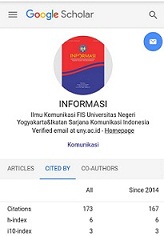Literal and metaphorical usages of "˜eat' and "˜drink' verbs in Nzema communication
Keywords:
consumption verbs, Nzema, metaphorical extensions, agent-oriented, patient-orientedAbstract
Eating and drinking form part of the daily activities of the Nzema. This paper investigates metaphorical extensions associated with the consumption verbs di "˜to eat' and no "˜to drink' in Nzema (Kwa, Bia). It seeks to explore domains in which the verbs are utilised metaphorically to relay everyday concepts and cognitive processes in the Nzema language. Data for the study comprise conversations collected from four respondents. The paper first presents a brief discussion on the components that comprise the central meanings of the verbs. The verbs and their metaphorical extensions are discussed under two major themes: Agent-oriented extensions and patient-oriented extensions. Under agent-oriented extensions, figurative usages that are based on the internalization of food as well as extensions based on the sensation of the agent undergoing the event are discussed. Extensions derived from the destruction of food during the process of consumption is discussed under the patient-oriented. The paper finds that in Nzema, the verb di "˜to eat' is utilised metaphorically to convey ideas such as to arbitrate, seduce, take oath, misappropriate among others. The verb no "˜to drink' conveys ideas such as to inhale or smoke, and to sponge. Remarkably, some metaphorical extensions of consumption verbs that are not reported in other African languages, such as extensions of eat for squabbling, for taking oath, for insinuating, for witnessing and for hunting, and the extensions of drink for sponging are present in Nzema.
References
Adjei, F. A., & Atintono, S. A. (2009). Comparative study on the metaphorical uses of eat
verbs "˜du' in Ewe and "˜di' in GurenÉ›. In P. Margarida & B. Mendes Ronald (Eds.),
Exploring the African languages connection in the Americas. Proceedings of the Special
World Congress of African Linguistics (pp. 184-192). Sao Paulo: Humanitas.
Agyepong, D. P., Amfo, N. A. A., & Osam, E. K. (2017). Literal and metaphorical
usages of "˜eat' and "˜drink' in Akan. Nordic Journal of African Studies, 26(1), 62–78.
Akumbu, P. W., & KieíŸling, R. (2021). Literal and metaphorical usages of Babanki eat and
drink verbs. Afrika und íœbersee, 94, 1–38.
Jaggar, P., & Buba, M. (2009). Metaphorical extensions of "˜eat' [overcome] and "˜drink'
[undergo] in Hausa. In J. Newman (Ed.), The linguistics of eating and drinking (pp. 229-252).
Amsterdam: John Benjamins Publishing Company.
Ní¦ss, í…. (2009). How transitive are eat and drink verbs? In J. Newman (Ed.), The linguistics of
eating and drinking (pp. 27-44). Amsterdam: John Benjamins.
Ní¦ss, í…. (2011). The grammar of eating and drinking verbs. Language and Linguistics Compass,
(6), 413–423.
Newman, J. (1997). Eating and drinking as sources of metaphor in English. Cuadernos de
Filologia Inglesa. Special volume on Cognitive Linguistics, 6(2), 213–231.
Newman, J. (2009). A cross-linguistic overview of "eat" and "drink". In J. Newman (Ed.),
The linguistics of eating and drinking (pp. 1-26). Amsterdam: John Benjamins Publishing
Company.
Newman, J., & Aberra, D. (2009). Amharic eat and drink verbs. In J. Newman (Ed.), The
linguistics of eating and drinking (pp. 253-272). Amsterdam: John Benjamins Publishing
Company.
Nyame, J. (2019). Hiatus resolution in Nzema. [Unpublished Master's thesis]. University of
Education, Winneba.
Rice, S. (2009). Athapaskan eating and drinking verbs and constructions. In John Newman (ed.),
The linguistics of eating and drinking (pp. 109-152). Amsterdam: John Benjamins.
Sheikh, S., & Ekkehard W. (1981). Towards a semantic analysis of the verb "˜kula' in KiSwahili.
In H. Inge (Ed.), Festschrift zum 60. Geburtstag von P. Anton Vorbichler (pp. 133-153). I.Teil.
Wien: Afro-Pub.
Song, J. J. (2009). What (not) to eat or drink: Metaphor and metonymy of eating and drinking in
Korean. In J. Newman (Ed.), The linguistics of eating and drinking (pp. 195-225). Amsterdam:
John Benjamins.
Wierzbicka, A. (2009). All people eat and drink: Does this mean that "˜eat' and "˜drink' are
universal human concepts? In J. Newman (Ed.), The linguistics of eating and drinking (pp. 65-
. Amsterdam: John Benjamins Publishing Company.
Williams, K. (1991). Radial structuring in the Hausa lexicon. A prototype analysis of Hausa "˜eat'
and "˜drink'. Lingua, 85, 321–340.
Yakub, M., Ibrahim, R. T., Tomekyin, C., & Nyame, J. (2022). Body parts idioms as linguistic
tool for polite communication among the Nzema. Altralang Journal, 4(2), 426-446.
Yakub, M., & Agyekum, K. (2022). Metaphorical euphemisms in death-discourse among the
Nzema. Studies in African Languages and Cultures, 5, 127-153.
Yakub, M., & Tomekyin, C. (2022). The semantic extension of pÉ› (to cut) in Nzema
communication. Studies in African Linguistics, 51(2), 277-293.
Ye, Z. (2010). Eating and drinking in Mandarin and Shanghainese: A lexical-conceptual analysis.
In W. Christenson, E. Schier & J. Sutton (Eds.), Proceedings of the 9th conference of the
Australian society for cognitive science. ASCS09: Proceedings of the 9th conference of the
Australasian Society for Cognitive Science (375-383). Sydney: Macquerie Centre for Cognitive
Science.
Downloads
Published
How to Cite
Issue
Section
Citation Check
License
Copyright (c) 2025 JOHN NYAME

This work is licensed under a Creative Commons Attribution-NonCommercial 4.0 International License.
Authors who publish with this journal agree to the following terms:
- Authors retain copyright and grant the journal right of first publication with the work simultaneously licensed under a Creative Commons Attribution License that allows others to share the work with an acknowledgement of the work's authorship and initial publication in this journal.
- Authors are able to enter into separate, additional contractual arrangements for the non-exclusive distribution of the journal's published version of the work (e.g., post it to an institutional repository or publish it in a book), with an acknowledgement of its initial publication in this journal.
- Authors are permitted and encouraged to post their work online (e.g., in institutional repositories or on their website) prior to and during the submission process, as it can lead to productive exchanges, as well as earlier and greater citation of published work (See The Effect of Open Access).











